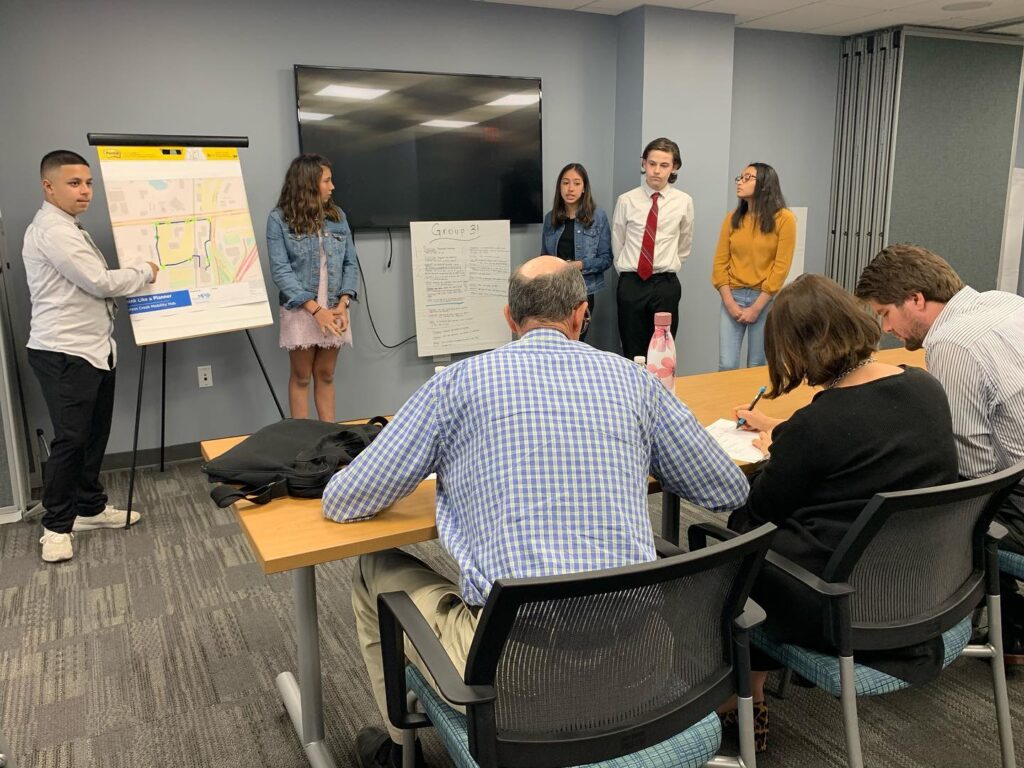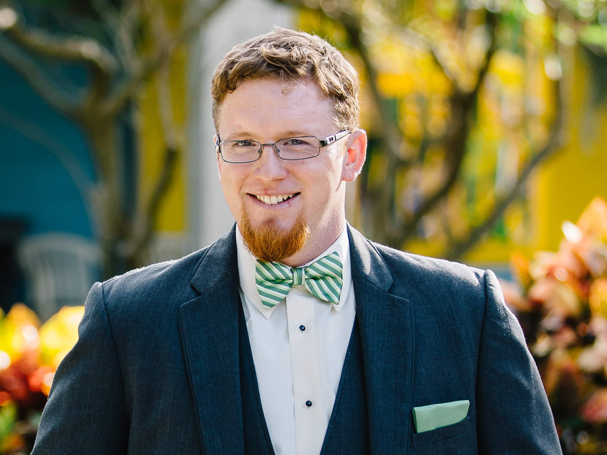By Lance Cutrer, Museum of Discovery and Science
Imagine a thriving community in the near future. What does it look like?
Perhaps it has green spaces like parks and a rich tree canopy. It promotes social engagement, fosters dialogue among neighbors and is economically diverse. This future community has also adapted to the adverse effects of climate change, managing extreme heat, sea level rise and intense weather events while mitigating its environmental impact.
This vision is not only possible but achievable, thanks to proper planning. The Museum of Discovery and Science (MODS) and the Broward Metropolitan Planning Organization (Broward MPO) are collaborating to bring this vision to life with a new educational initiative: Think Like a Planner.
What Is Think Like a Planner?

Think Like a Planner is a program for students in the third grade and up, focused on teaching the principles of sustainable urban planning. This approach to city and community design seeks to promote environmental health, social equity and long-term economic success. By fostering a better understanding of these principles, the program aims to inspire the next generation of city planners and community leaders to think critically about how to build resilient and thriving communities.
The Broward MPO, known for its leadership in shaping the urban landscape of South Florida, has developed a comprehensive Broward Vision 2100 Plan, which serves as a guiding framework for this program. This plan emphasizes creating safe, vibrant and accessible communities that cater to the needs of residents, commuters and guests alike. Inspired by this forward-thinking initiative, Think Like a Planner helps students explore real-world urban challenges and solutions through fun, hands-on lessons offered through MODS’ STEMobile program.
The STEMobile is a community-based, mobile Makerspace for ages 3 and up, bringing cutting-edge equipment and experiences often unavailable to youth – especially youth residing in underserved communities. The STEMobile program has grown to a fleet of five vehicles, delivering programs to 100,000 youth annually.
Ninety percent of all programs are delivered free, serving youth at Title 1 schools, early learning centers, libraries and non-profit agencies from the lowest-income zip codes in Broward County, where families are most affected by intergenerational poverty and the lowest educational attainment levels. These lessons are available to educators across South Florida, often at no cost.
Sustainable urban planning in action
The Think Like a Planner program covers various aspects of sustainable urban development, each contributing to the overarching goal of building communities that are more environmentally friendly, socially equitable and economically viable. Some of the core lessons include:
Complete Streets: designing for all modes of transportation
The Complete Streets lesson introduces the concept of streets designed for all modes of transportation— not just cars. Sustainable urban planning embraces alternative modes of travel, such as walking, biking and public transportation.
Complete streets are key to fostering healthier communities, as they encourage physical activity, reduce traffic emissions and create safer environments for everyone. By making communities less dependent on cars, cities can lower their carbon footprint and promote social interaction. For adults, advocating for complete streets can be a tangible step toward sustainability, as these streets also help reduce urban heat islands and promote walkable, resilient communities.
Build-A-Better Bus Stop: improving public transportation
Public transportation is a cornerstone of sustainable communities. The Build-A-Better Bus Stop lesson highlights how improvements in public transportation infrastructure, such as well-designed bus stops, can encourage people to use public transit more frequently. This reduces the number of cars on the road, decreasing greenhouse gas emissions.
Better bus stops that offer shelter, shade and other amenities create a more comfortable and accessible experience, making public transportation a more viable option for everyone. These improvements not only address environmental concerns but also promote social equity by ensuring that transportation is accessible to all members of the community.
Community Builders: balancing people, planet and prosperity
The Community Builders lesson delves into the broader concept of sustainable urban development, emphasizing the Triple Bottom Line: people, planet and prosperity. For communities vulnerable to climate change and rising sea levels, balancing these three elements is essential for long-term survival.
The lesson demonstrates how smart land-use zoning and urban design can create sustainable futures. Encouraging mixed-use development, for example, can reduce the need for long commutes, promote local economies and create vibrant, interconnected neighborhoods that can adapt to changing environmental and economic conditions.
Involving the community

An essential part of building resilient communities is engaging a wide range of stakeholders, including residents, business owners and local officials. The Community Builders lesson emphasizes the importance of stakeholder engagement in the urban planning process.
Communities thrive when diverse voices are heard and everyone is involved in making decisions that shape the future. MODS and the Broward MPO encourage community members to take action by participating in local planning meetings, advocating for resilient infrastructure and supporting sustainable building initiatives.
By offering students and the community a chance to explore these critical urban planning concepts, Think Like a Planner fosters the knowledge and skills necessary to create resilient, sustainable communities. To learn more about these initiatives and how you can get involved, visit mods.org and join the movement toward a thriving, sustainable future.
Lance Cutrer is the director of environmental sustainability at the Museum of Discovery and Science. He is an education and sustainability professional with expertise in ecology, wildlife and fisheries management and primary/secondary education. Banner image: Students engage in hands-on activities as part of the Think Like a Planner program (Photo courtesy of MODS).
Sign up for The Invading Sea newsletter by visiting here. If you are interested in submitting an opinion piece to The Invading Sea, email Editor Nathan Crabbe at ncrabbe@fau.edu.



